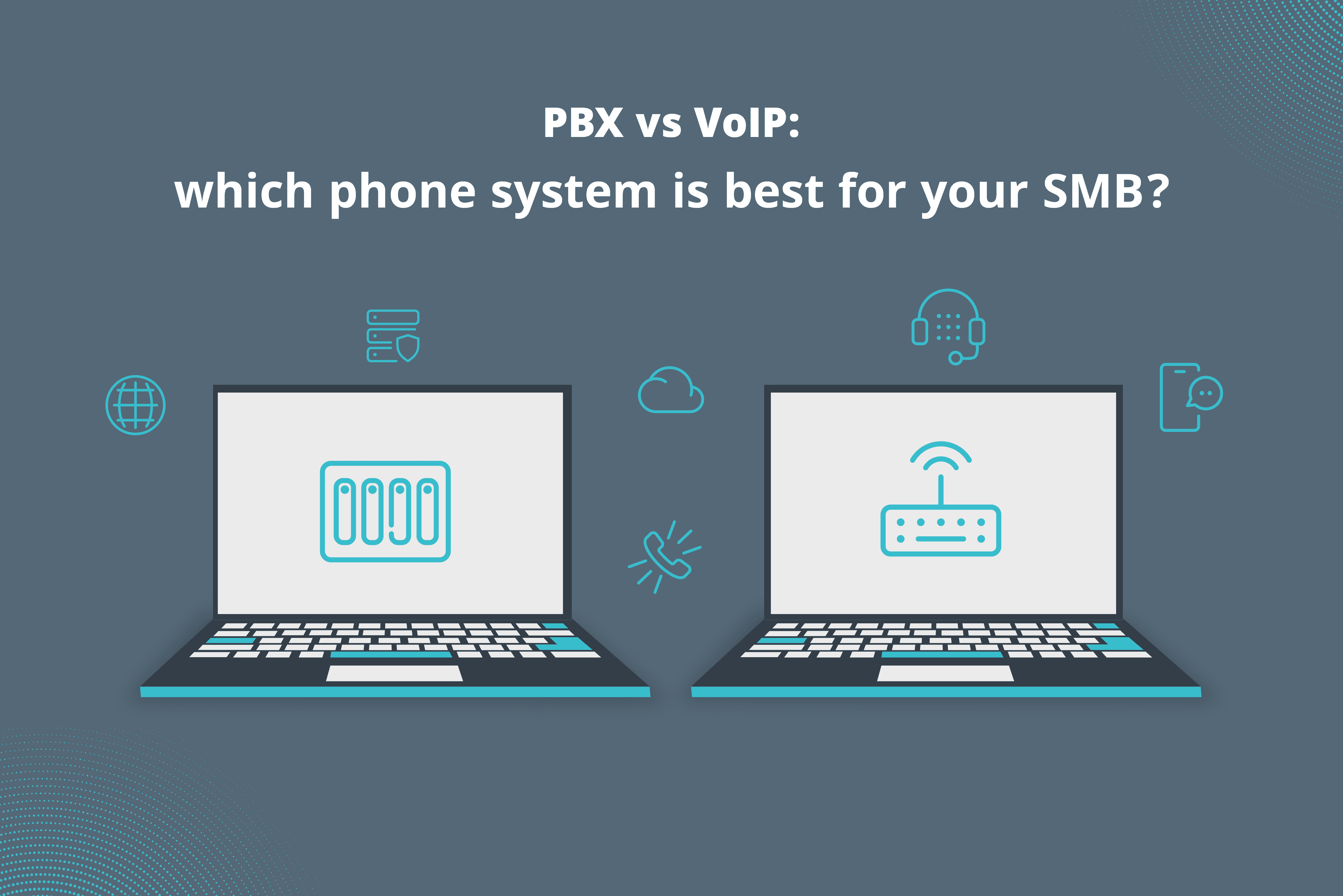No matter the size, industry, or business function, a phone system is essential for almost every organization. There are various options in the marketplace today for this crucial service, but two solutions are generally used the most. There is the traditional PBX system or the more modern VoIP solution. In this article, we’ll take a closer look at the two options and explore which is best for your organization.
Definition of PBX
The acronym PBX stands for private branch exchange. It is a telephone system that operates in one building or one company. Users generally need a dedicated desk phone for making and receiving phone calls, and the system works internally from station to station for communication.
The first recorded PBX system was set up in 1879 in Dayton, Ohio. The first model of the PBX telephone system was a non-standard modification of CO switches. Later, AT&T put forward the first standard PBX system in 1902. Since then, few advancements have been made.
Definition of VoIP
VoIP is a system that allows you to make phone calls using a broadband internet connection. VoIP uses the internet protocol (IP) to transmit voice packets over an internet network, and any data network that uses IP can be used for VoIP.
VoIP solutions were first built in 1995 and were created to help with international calls. However, since then, this solution has made great strides because of improvements in internet connections and overall technology. As a result, consumers have noted tremendous advances in audio quality and cost savings.
PBX vs. VoIP: Top 11 differences
Even though PBX and VoIP are telephone systems used widely across businesses today, there are critical differences between them. Here are the top 11 differences between the two.
- VoIP technology is a newer advancement in telephone systems. In comparison, PBX systems are antiquated and have existed since the 1900s.
- VoIP uses a packet-switched network, such as the internet, to move digitized voice data from one point to another. However, PBX is a miniature telephone network set to work within a company while providing several lines to an external phone company where calls can go in or out.
- Most PBX systems can’t handle VoIP calls because they were created and perfected before the advent of VoIP. However, almost all VoIP systems can handle PBX calls.
- VoIP systems offer video calling, text messaging, and other enhanced capabilities. These standard business features are not part of traditional PBX systems.
- VoIP systems are more flexible. You need only to make a few changes in a web-based interface to add new lines and users. These changes are much more difficult in a PBX system because it requires hardware and software updates. PBX systems are wired to your landline, meaning their location is fixed, so you can only make and receive calls from your office.
- VoIP systems are made for scalability and don’t require hardware upgrades to add users or lines. With PBX systems, you need to connect each user to the PBX board, and their phone needs to be wired in.
- VoIP phones are much simpler and less expensive to install than PBX because they connect directly to your existing broadband connection. Costs can increase when adding more users, but this is minimal compared to the price for new users on PBX systems.
- VoIP gives your organization a professional face. If you want to make calls remotely or from a temporary workspace, you’ll need to use your mobile or an alternative landline if your business uses PBX. This can result in lower quality calls, and it also means you can’t use additional PBX features or the same number across devices.
- VoIP is not dependent on your location. It provides office-calling functionality from all places. As long as you have a strong internet connection, you can set up your VoIP phone at home, on-site, or in your office.
- PBX solutions still depend on specific device types, whereas VoIP solutions work with any device connected to the internet.
- PBX systems are hardware-based and require specialized, costly equipment, so they’re more challenging to configure, maintain, and upgrade. VoIP systems enable businesses to integrate and personalize unique software and technology to improve business communications.
Pros of PBX
A PBX phone system allows a business to connect unlimited telephone lines with a single network. PBX systems can also mask caller-ID for privacy and inform customers of their place in a queue. A PBX system works well for companies with high call volumes.
Cons of PBX
There is a high initial investment necessary when incorporating a PBX system into your business. This is due to the hardware and additional equipment required to use a PBX system. Also, PBX systems can no longer compete in terms of audio quality. Other communication systems have far surpassed PBX systems because of technology.
Pros of VoIP
VoIP provides a great deal of flexibility for businesses. It helps companies reduce the number of lines in their phone system, ultimately leading to cost savings. Most VoIP providers use features that allow seasonal businesses to scale up and down to control expenses. Additional features such as video calling to email integration are other great benefits of VoIP for businesses. The VoIP system also allows teams to work remotely while maintaining a single phone number. This is huge in today’s world, and most small businesses recognize the need for this functionality.
Cons of VoIP
You will need a reliable internet connection to set up VoIP for your business. There can be some latency and jitter with VoIP systems; however, this is not a significant issue if dealt with correctly. You can learn more about this in how to get rid of jitter for VoIP.
What is right for your business: PBX or VoIP?
Even though both solutions help streamline business communication, PBX and VoIP systems are considerably different. So which is better for your company?
VoIP is a modern system that passes telecommunications data over the internet. The benefits are significantly better in terms of call quality than standard practices. Also, VoIP services often come with integrated communications features, like instant messaging, video chatting, conference calling, voicemail transcribing, and file sharing.
PBX was the primary communication tool in big businesses for the last few decades. However, the system is falling out of favor due to the rise of the internet and systems like VoIP.
VoIP communications solutions combine the best aspects of phone systems and the internet to offer SMB organizations efficient, streamlined communication. VoIP can also save businesses a lot of money in the long run. When comparing the two, VoIP might be the best option for your SMB.
Broadvoice is an all-in-one communication platform that offers VoIP solutions. Learn more and get your custom plan today.








